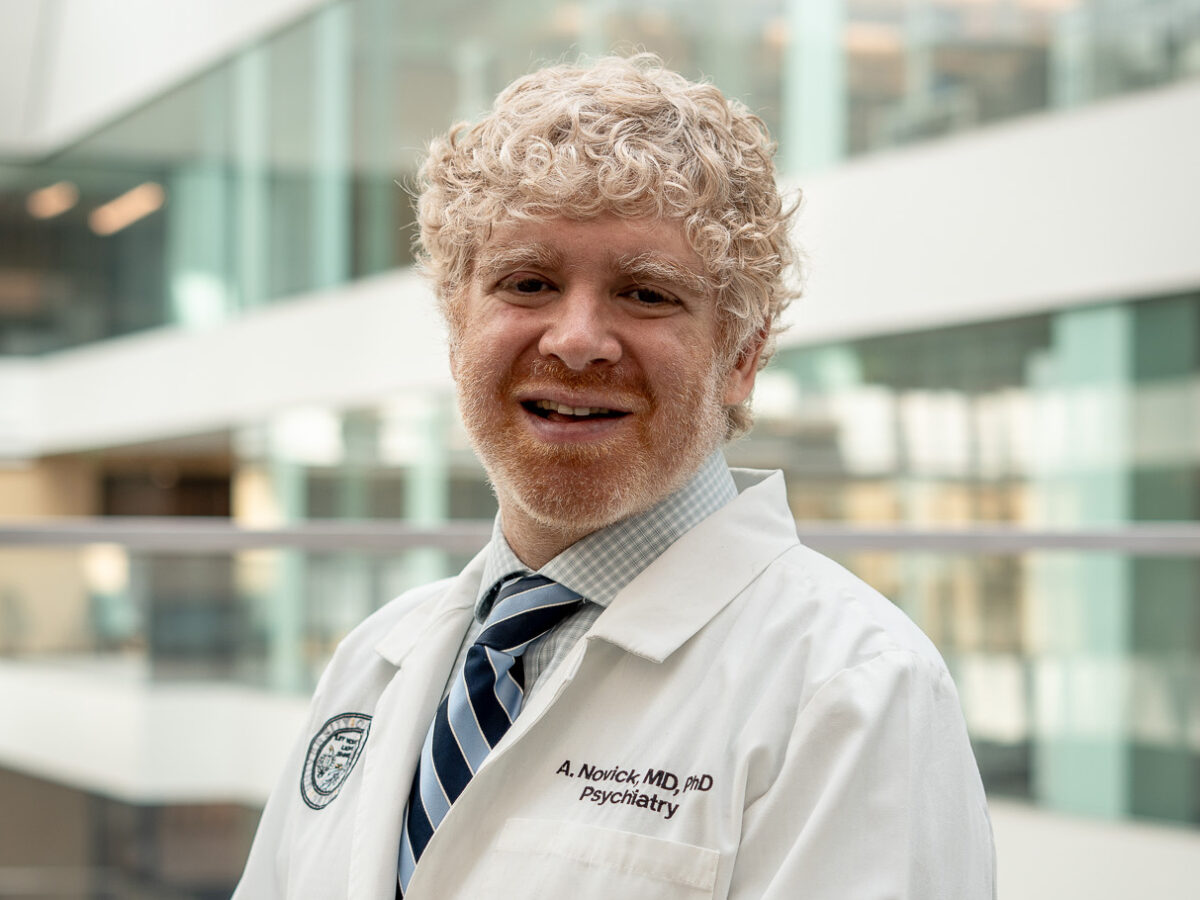Andy Novick ’01: Novel therapeutics

Dr. Andy Novick '01 researches psilocybin as promising treatment for neuropsychiatric disorders
Andy Novick ’01 enjoys all aspects of his work as an assistant professor of psychiatry at the University of Colorado, a psychiatrist and a researcher. But spearheading clinical trials in treating major depressive disorder with psilocybin, a component found in certain species of fungi, is what he finds the most exciting.
“It’s the ability to oversee people getting dosed with this psychedelic compound, making sure it is done safely, and the potential things we can learn from it,” Novick says.
A Drug Enforcement Administration Schedule I license allows Novick to possess and administer the drug for research, and an investigational new drug license from the Food and Drug Administration authorizes him to specifically study psilocybin for major depressive disorder, he says. The FDA “had to green light me and go through my study protocol with a fine-toothed comb.”
Novick’s interest in psychopharmacology began at Exeter, where he felt supported as he explored the topic. Science Instructor Kathleen Curwen, one of his favorite teachers, taught him both chemistry and biochemistry. “It was in her class that I got to write my first psychopharmacology paper,” he says, “critiquing an article on testosterone derivatives and aggressive behavior. When I told her the topic, she didn’t consider it odd. Instead, she let me run with it.”
Novick began doing research in neuroscience at Philadelphia College of Pharmacy, where he earned a bachelor’s degree in pharmacology. He went on to receive his medical degree and Ph.D. in neuroscience from the University of South Dakota. In 2019, he joined the faculty at the University of Colorado.
“It became really obvious around 2021 or so that psychedelics were going to be a part of psychiatry that wasn’t going anywhere,” he says. “Psilocybin was something I wanted to start with given that it had some research suggesting a really high utility in things like major depressive disorder.”
The clinical research Novick is conducting at the university’s Anschutz Medical Campus entails a psilocybin trial in 40 individuals with treatment-resistant major depressive disorder. He says, “Subjects are randomized to receive either a therapeutic dose of psilocybin or an inactive microdose of psilocybin that acts as a placebo.”
Results from the eight-week trial have proved auspicious. “What we think psilocybin does is that it creates a window of opportunity in the brain for significant change,” he says. “People with depression are often stuck in a brain state in which they have certain thoughts and feelings, often of a very negative nature, that they can’t get out of. Psilocybin makes the brain more plastic and more open to potential change — to change those patterns of thoughts, feelings and behaviors.”
Novick tempers his enthusiasm with reality. “Major depressive disorder is a serious and difficult illness,” he says. “I don’t think this is going to be the ultimate fix for the entire population. But I do think it’s going to be a huge improvement from what we have right now.
“This work is very much my life,” Novick continues. “Some call that being a workaholic or not having balance. I prefer to view it as getting to do interesting stuff that I enjoy, every day.”